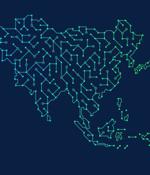Security News

Elon Musk has written an article for the Cyberspace Administration of China's flagship magazine. "Chinese companies will be a force to be reckoned with in the cause of energy innovation," Musk opined in the article.

Beijing-backed cyberspies used specially crafted phishing emails and six different backdoors to break into and then steal confidential data from military and industrial groups, government agencies and other public institutions, according to Kaspersky researchers. "The attackers were able to penetrate dozens of enterprises and even hijack the IT infrastructure of some, taking control of systems used to manage security solutions," the team wrote in a report published on Monday.

The UK's Parliament has ended its presence on TikTok after MPs pointed out the made-in-China social media service probably sends data about its users back to Beijing. The existence of the account saw half a dozen MPs write to the presiding officers of the Houses of Lords and Commons - Lord McFall of Alcluith and Sir Lindsay Hoyle, respectively - to ask for the account to be discontinued.

The investigation relies on information mainly gathered by the US central bank regarding an internal probe of 13 persons of interest known as the P-network. Those individuals were allegedly part of a network engaged in a "Sustained malign influence and information theft campaign" targeting the Federal Reserve.

The UK's response to China's well-publicized efforts to use technology standards to shape the world in its image has been "Incoherent and muted" according to report by the House of Commons Foreign Affairs Committee. Published last week, the report, titled "Encoding values: Putting tech at the heart of UK foreign policy", follows up on previous policy work that recommended the UK ensure that its foreign policy recognize the value and importance of shaping technology industries and standards.

China suffers massive cybersecurity breach affecting over 1 billion people. Residents of China are reeling today from the news that a cybersecurity breach led to over a billion people's personal information being made available to hackers.

Five suspects were indicted in a federal court in Brooklyn, New York on Wednesday for alleged crimes related to a campaign to silence dissidents in the US who opposed the government of the People's Republic of China. Three of the individuals - Fan "Frank" Liu, Matthew Ziburis, and Qiang "Jason" Sun - were charged, along with two others, in March with stalking, harassing, and spying on Chinese dissidents in the US who spoke out against the Chinese government.

Speaking to an audience of business and academic leaders, MI5 director general Ken McCallum and FBI director Chris Wray argued that Beijing's Made in China 2025 program and other self-sufficiency tech goals can't be achieved without a boost from illicit activities. The Chinese Government sees cyber as the pathway to cheat and steal on a massive scale.

A pro-China influence campaign singled out rare earth mining companies in Australia, Canada, and the U.S. with negative messaging in an unsuccessful attempt to manipulate public discourse to China's benefit. Targeted firms included Australia's Lynas Rare Earths Ltd, Canada's Appia Rare Earths & Uranium Corp, and the American company USA Rare Earth, threat intelligence firm Mandiant said in a report last week, calling the digital campaign Dragonbridge.

Researchers have identified a small yet potent China-linked APT that has flown under the radar for nearly a decade running campaigns against government, education and telecommunication organizations in Southeast Asia and Australia. Researchers from SentinelLabs said the APT, which they dubbed Aoqin Dragon, has been operating since at least 2013.